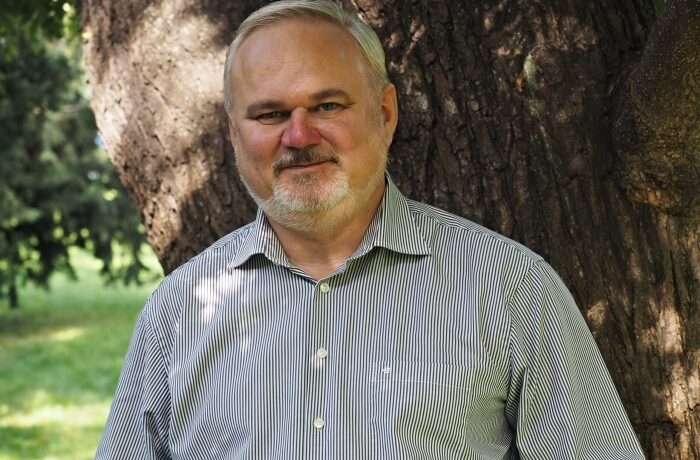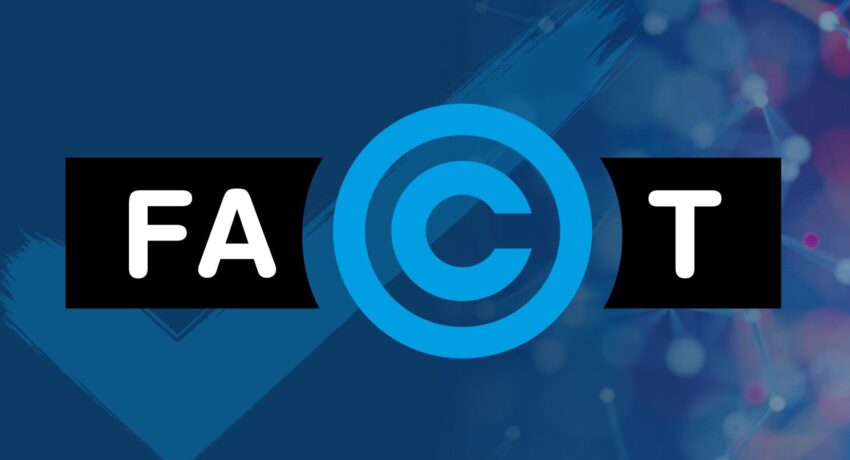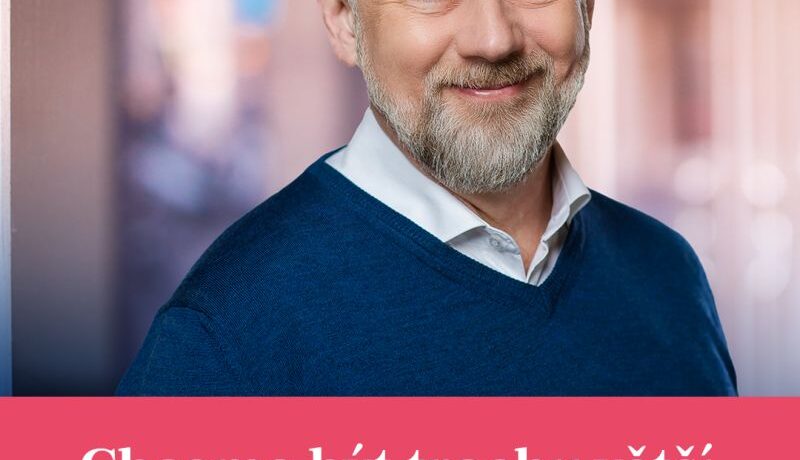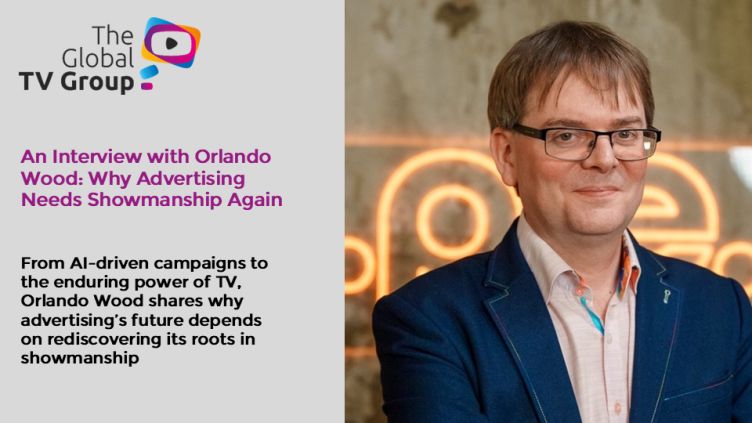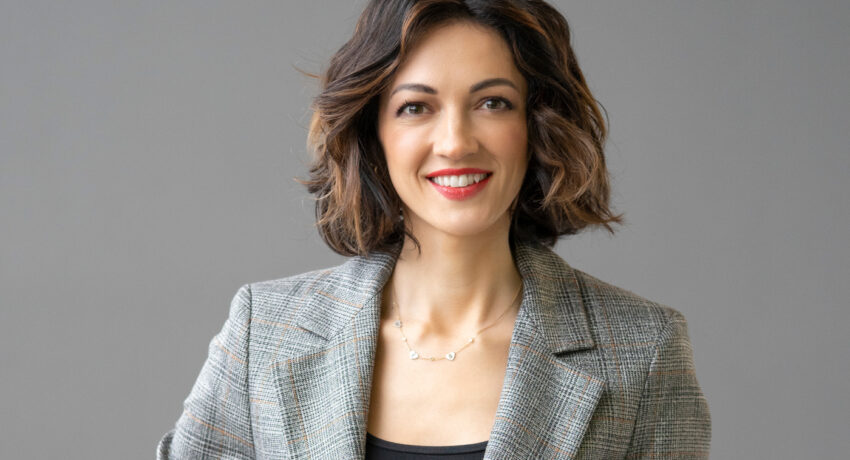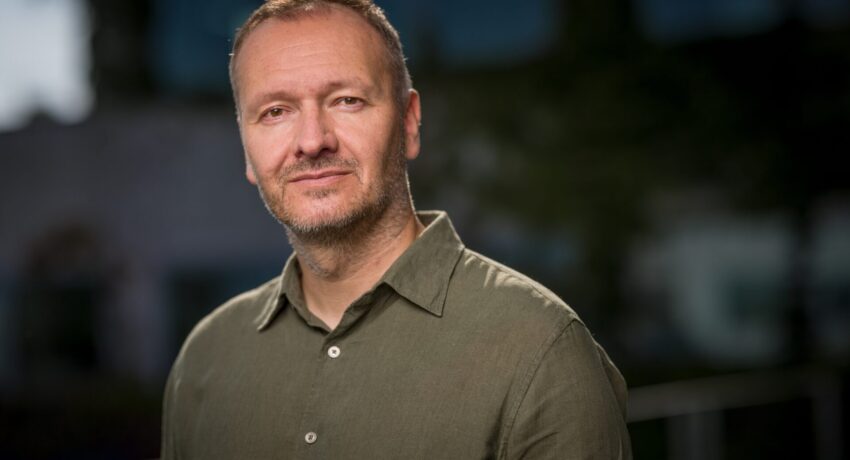TV Nova’s CEO, Daniel Grunt, confirms that Nova will increase TV advertising prices next year. However, the increase will not be as significant as last year. At the same time, he estimates that streaming revenues could match those from TV advertising around 2030.
Launched this March, the Oneplay platform is increasing its number of subscribers, according to Daniel Grunt, CEO of TV Nova. However, Nova does not officially disclose specific numbers, explaining that it values the time users spend on the platform more. According to data presented at the press conference for the autumn schedule, the average time spent on Oneplay per user is said to be up to 30 hours per week.
Although streaming is growing rapidly, television broadcasting remains important for Nova. Last year, TV advertising and other commercial messages on television generated CZK 5.9 billion, about 64% of total revenues. According to Daniel Grunt, the digital business is gradually becoming more significant as well. Revenues from subscriptions and online advertising exceeded CZK 1 billion last year, and by 2030, their share could match TV advertising revenues. “Streaming will grow in double digits, but traditional broadcasting still holds a stable position in the Czech Republic, which is why we continue to invest in it,” Grunt said in an interview with MediaGuru.cz.
He also comments on the future development of TV advertising prices. According to him, Nova will raise prices again in 2026, but not as significantly as in the past two years, when it aimed to reduce excessive sell-outs.
The interview also addresses the topic of cooperation with operators, the exclusivity of Oneplay, considerations about advertising layers in streaming, and the overall situation in the TV advertising market.
Oneplay, the platform combining the former Voyo and O2 TV, has been operating since March. What most of the market is interested in is how the merger has impacted the number of customers. How is the subscriber base developing?
With the launch of Oneplay, we decided that we would no longer disclose subscriber numbers. It was interesting and motivating for us when we started Voyo five years ago because it was a commitment. We set a goal to grow from tens of thousands to one million subscribers within five years. This was primarily an internal factor to motivate people to start taking a fundamentally different approach.
Are you no longer setting a similar goal now?
In the case of Oneplay, that’s not really the goal anymore, because Voyo, together with Slovakia, has nearly reached that million mark (editor’s note: the last published number was 950,000 subscribers in December 2024), and O2 TV was the largest IPTV service (editor’s note: with nearly a million users at the end of 2024). Since its launch, Oneplay has been a major platform. Now, it’s much more important for us to know how much time people spend on Oneplay. That’s why I talked about it today (editor’s note: at the press conference for the autumn schedule; the average time spent by one user on Oneplay is 30 hours per week). My goal with Oneplay is to create one central, most popular place — a single app where Czech households will come for content. We have combined two worlds that were not fully connected before. O2 TV viewers were essentially pay-TV customers who made minimal use of their video library and typically subscribed to Voyo or another VOD service alongside it. On the other hand, Voyo users consumed up to 99% of the VOD library but barely used our linear channels. That’s why it’s now crucial how the integrated service is structured, how the interface is set up, and how to present the most attractive content to people, regardless of whether it’s linear broadcasting or video library content. The goal is to keep viewers, so they don’t feel the need to go elsewhere.
Besides the average viewing time, you mentioned that the service is “growing right before our eyes.” Does this growth relate to both content and users?
Yes, when it comes to paying customers, the numbers are indeed growing. However, at this moment, it is far more important for us to quickly teach viewers from both segments—TV and VOD—to use the part of the content they haven’t accessed yet. Because once they start using it fully, they realise the value they get from Oneplay. Nowhere else on the market are Oneplay Originals or older Voyo Originals available. They won’t find the top Czech football or hockey leagues anywhere else, and nowhere else can they watch TV Nova’s own content without ads before it airs on TV. The more they take advantage of these benefits, the more the service will grow. At the same time, it’s a very effective tool to reduce the churn rate. As users spend more time on the platform, they feel less need to pay for additional services.
Will the merging of these “two worlds” affect the usage of the terrestrial platform? If so, by how much could IPTV grow?
We don’t think about it that way. Our key goal is combined reach with our content—that is, reach through both linear broadcasting and VOD, regardless of the distribution platform. But yes, it can generally be expected that people will increasingly use online distribution, which offers them greater comfort and benefits.
At this moment, it is far more important for us to quickly teach viewers from both segments—TV and VOD—to use the part of the content they haven’t accessed yet.
Daniel Grunt
How are you tracking the user statistics for Oneplay?
We have one set of statistics. At Nova, we collect data on viewership as well as business data such as “gross add,” meaning the number of new subscribers, and “net adds,” which is the ratio between new subscribers and those who have cancelled. We keep all of this statistical and business data.
If a customer paid for O2 TV, are they counted as a linear TV viewer or as a Oneplay user?
A user who pays for Oneplay through O2 (a former O2 TV customer) is considered an O2 customer. Oneplay is a single service, but it has two operators. Nova creates the platform, handles content and marketing, and owns Oneplay. However, for the O2 customer base, Oneplay is operated by O2, while for users who purchase the service directly without commitments, it is operated by Nova. Nova manages its own user database, and O2 manages theirs.
What has changed for you in your relationships with other operators as a result of this merger? Are you considering new forms of cooperation with other operators?
Since our company operates both streaming and linear channels, operators remain our partners from the perspective of linear channels. This is an important part of our revenue, whether it’s free-to-air channels—classic TV Nova channels—or paid sports channels. This area is of long-term interest to us. Then there is the streaming part, through which we offer something exclusive only for Nova and O2 viewers. Users can either purchase the service directly from us or through O2. There is no other way for users to access Oneplay.
Will it stay that way?
Never say never, but this is how we intend to keep it in the long term.
Users cannot access Oneplay anywhere else but through O2 or Nova. This is our long-term intention.
Daniel Grunt
The financial results of the Nova group from last year show that revenues from traditional TV advertising on Nova reached CZK 5 billion out of a total of CZK 9 billion, remaining the majority share.
Purely television advertising—including ads, sponsorships, and product placements—accounts for more than 60% of revenues. However, just three years ago, it was over 75%.
Online advertising and Voyo (now Oneplay) generated over CZK 1 billion in revenue last year. How is the volume of these revenues expected to change?
I believe it will grow in the long term for two reasons. First, the subscriber base will increase. And second, we have raised the price, which will lead to higher revenues.
How high could they become?
I estimate that around the year 2030, the share of revenues could be balanced. This means that television advertising will continue to be important for us. We are not giving up on these revenues, which is why we keep investing more and more in original content for linear channels. Although the TV market is slowly declining, it is not shrinking as quickly as in other European countries or the United States. Therefore, it is still worth focusing on content for traditional broadcasting. Our goal is to grow in a slightly declining market and increase our market share. And there is also streaming, which continues to grow rapidly, with double-digit growth. Since the launch of Voyo, we have been growing the fastest in the market.
We talked about the importance of operators. Although it is not explicitly disclosed in the income statement, it can be inferred that revenues from operators amount to around CZK 2 billion. Is that possible?
The two billion corresponds to the entire category of “other income,” which includes carriage fees. So the amount is actually lower, but revenues from operators of paid services for distributing our channels are the second highest after television advertising, followed by streaming.
Are you planning to raise TV advertising prices in 2026?
We will definitely increase prices, but I can’t say by how much yet. We are still evaluating it, but it certainly won’t be as much as in recent years (editor’s note: last year +22%). Over the past two years, we raised prices more to prevent maximum sell-out rates that we were facing. Nova was not used to having sell-out rates around 94-95%. Excessive sell-out reduces viewer experience and also lowers effectiveness for advertisers. We wanted to maintain the quality of the advertising product, so we took a more significant price increase.
Although the television market is slowly declining, it is not shrinking as quickly as in other European countries or the United States. Our goal is to grow in this market and increase our market share.
Daniel Grunt
Will you manage the volume of GRPs in VOD (Oneplay) by preventing ad skipping in catch-up viewing?
Last year, as we approached full sell-out, the need for additional GRPs was more urgent than it is this year. Many TV stations across Europe are gradually moving toward banning ad skipping. We have been considering this for several years as well, but so far, we have not decided whether or when we will implement such a measure. There are many factors involved in this decision.
Could an advertising layer also be introduced for Oneplay? Are you considering it?
That is, of course, also a possibility; however, it is not on the agenda at the moment. As I mentioned earlier, we want users to get familiar with the service and learn to use it fully.
What has changed in the TV advertising market that you are not under as much pressure to find additional capacity for GRPs? Is it due to Nova’s audience growth, or a slowdown in the advertising market?
It’s a combination of three factors. First, Nova is strengthening its share of viewership, which helps us. The second factor is that there is a sense of caution in the market this year. We expected the market to grow faster. I would describe this year’s development as between slight growth and stagnation. However, that is still very good, because last year saw significant growth. And the third factor is price increases, which have led to fewer GRPs being purchased for a similar amount of money.
Source: mediaguru.cz



